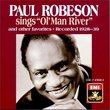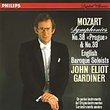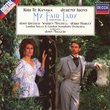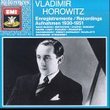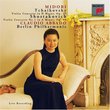| All Artists: Plácido Domingo, Nina Stemme, Matthew Rose, Mihoko Fujimura, Ian Bostridge, Olaf Bär, Jared Holt Title: Wagner: Tristan und Isolde [Includes Bonus DVD] Members Wishing: 0 Total Copies: 0 Label: EMI Classics Original Release Date: 1/1/2005 Re-Release Date: 9/13/2005 Album Type: Box set Genre: Classical Styles: Opera & Classical Vocal, Symphonies Number of Discs: 3 SwapaCD Credits: 3 UPC: 724355800626 |
Search - Plácido Domingo, Nina Stemme, Matthew Rose :: Wagner: Tristan und Isolde [Includes Bonus DVD]
![Wagner: Tristan und Isolde [Includes Bonus DVD]](https://nationalbookswap.com/cd//l/54/8954/6128954.jpg) | Plácido Domingo, Nina Stemme, Matthew Rose Wagner: Tristan und Isolde [Includes Bonus DVD] Genre: Classical
This much awaited recording of Tristan was worth waiting for. The draw was, of course, Placido Domingo, who now in his mid 60s will never sing the role of Tristan on stage, but whose legions of fans have been certain that ... more » |
Larger Image |
CD DetailsSynopsis
Amazon.com This much awaited recording of Tristan was worth waiting for. The draw was, of course, Placido Domingo, who now in his mid 60s will never sing the role of Tristan on stage, but whose legions of fans have been certain that he'd make a remarkable go at it. He is indeed excellent, singing with beautiful tone and legato (Wagner insisted that the Italian art of singing be used for his operas as well) and clear if not impeccable diction. Except for some moments, such as midway through the first-act interview with Isolde and the Love Duet, where his attention seems to flag, Domingo shows great attention and sensitivity to Tristan's plight. There's the odd moment of strain, but they're so rare that a tenor half his age would be proud of such a vocal display. Two grand performances come from soprano Nina Stemme and conductor Antonio Pappano. Stemme is radiant as Isolde, with a big, clear, appealing sound that is never forced. Her identification with the character is not yet on a level with Flagstad's, Modl's, or Nilsson's; she lacks the worldly resentment to Tristan and she can't express sarcasm, but there's great urgency to her singing and it's refreshing to hear such a young, secure voice. Antonio Pappano leads the opera quickly (only too quickly once or twice), with little obsessive subtext, and he totally understands how to pace a scene for its dramatic tension. René Pape is a fine, youthful-sounding King Marke; Olaf Bär's Kurwenal is somewhat forced; Mihoko Fujimara is a light but effective Brangaene. And with such stars as Ian Bostridge and Rolando Villazon as the Shepherd and Seaman, the set is truly luxurious. Perhaps this Tristan isn't a first choice (remember Furtwängler and Böhm!), but it will be for Domingo fans, and it's excellent on may other levels as well. --Robert Levine Similarly Requested CDs
|
CD ReviewsBEL CANTO BANQUET for Wagnerites F. P. Walter | Albuquerque, NM | 09/13/2005 (5 out of 5 stars) "This recording has been making headlines for largely extramusical reasons: it's maybe the last bigtime studio effort; private money had to foot much of the bill; and it's Placido Domingo's only crack at a role he's been approaching and avoiding for decades. So when I ordered it from overseas, what did I expect? Mostly a one-man showcase, though a decently interesting one since Domingo possesses the hard-to-believe combination of a splendidly preserved voice plus smarts and integrity. But what I NEVER expected was that these discs would embody an original, valid, long overdue, and genuinely moving reinterpretation of this disturbing masterwork. What gives? Well, as the admired British critic John Steane once wrote, Wagner himself "is said to have constantly urged his interpreters to sing in the Italian manner." And what does this manner entail? Steane again: "smoothness of line, beauty of tone, and elegance of technical accomplishment." Handed the reins by EMI, Covent Garden music director Antonio Pappano has, at long last, set about giving us nothing less than bel canto Wagner. You hear it from the outset of the Act I prelude -- the strings are warm and burnished, spin a continuous singing line, crescendo in arcs from the brink of inaudibility, then taper back into silence on phrase endings. And when the young sailor (Rolando Villazon in luminous voice) sings his love ditty, similar principles apply: long-breathed legato, mastery of a wide dynamic range (including echo effects and well-supported soft singing), and eager articulation of the text. Clearly this is official directorial policy, because much the same can be said of every cast member here. Mihoko Fujimura's lyric mezzo traces Brangaene's lines with unusual delicacy and variety, perfectly in tune, finely focused, floating her high notes ("Welcher Wahn!" in I iii is sweetly nurturing, the Watch in II ii marvelously ethereal). As for Isolde, here the set serves instant notice that it isn't a Domingo ego trip but a whole-souled effort to do the work justice. Nina Stemme hasn't Fujimura's floated high notes (she sustains her pianissimo F sharp at the close of "Mild und leise" by discreetly widening the vibrato), but she has everything else: imaginative phrasing, bright, fresh tone, pinpoint intonation, steady emission, well-knit scale, soaring top, melting legato ("Ich bin's, ich bins" in III ii is heartrending). Within seconds of her first entrance it's clear she's the real thing: she piles hair-raisingly into "Hoert meinen Willen" and you realize she's as accomplished an Isolde as we've had since the seventies. Our two low-voiced leads aren't on this level but still have plenty to offer. Olaf Baer's lovely baritone is undersized and thin on the bottom for the rambunctious Kurwenal, but he really sells his taunting ballad and is sensitive and affecting throughout Act III. As for Rene Pape, his mellifluous basso cantate is choice casting for King Marke, though his forte top notes are less secure than they were on the Met DVD. But with Pappano's encouragement, his line readings are more probingly detailed and he manages a marvel of hushed poignancy at "Da kinderlos." Plus we sense the conductor's fine Italian hand even with the bit players: they all display this same balance of smooth legato and pointed articulation of the words -- e.g., the intimate delivery and silver sound of Ian Bostridge's shepherd, or Jared Holt's split-second ability to make a formidable figure of Melot through ringing tone, energetic phrasing, and a telling subito piano at "ob ich mein Haupt." And now the set's reason for being. There's no percentage in quibbling over Domingo's Tristan -- the voice is in excellent working order -- or in chiding him for not tackling the part onstage -- tenors who do seem not to enjoy long careers (Hofmann, Thomas, Jerusalem, Kollo, even Windgassen; Melchior doesn't count because he sang a drastically abridged and simplified version). But in the studio the role's characteristic high notes (A flat, A) aren't a problem, Domingo's bronze timbre aptly suggests Tristan the warrior, his soft singing is firmly supported and never crooned or declaimed (unlike the maverick Vickers), and he partners Stemme gallantly (in the duet passages of "O sink hernieder," they pitch the tricky intervals with breathtaking ease and accuracy). His could well be the most thoroughly SUNG Tristan in Wagner history -- yet, like the rest of the company, he's also alert to verbal and theatrical values, sardonically relishing the consonants at "seines flackernden Lichtes fluechtige Blitze," almost spooky at "Dem Land, das Tristan meint," downright bloodcurdling during his curse on the "furchtbarer Trank." Again, there's no percentage in quibbling -- this Tristan is intelligent, poetic, emotionally open, vocally qualified, musically immaculate, and desperately needed. In short, it's a genuinely significant piece of work and a fitting capstone to an extraordinary career. As suggested, the Covent Garden orchestra is another eloquent factor. First violins come from your left speaker, seconds from your right, instantly clarifying the polyphony. Tempos are fleet yet cleanly executed, so nothing seems rushed. And in a crunch this band has no problem exchanging bel canto lyricism for crushing power: they're thrilling in the runup to Tristan's entrance in II ii, gut-wrenching with the famous discord that interrupts "O ew'ge Nacht." The stereo sonics are warm, airy, and wide-ranging, locating events with exceptional variety and specificity between the two speakers. Since directionality is already superb, the bonus DVD in 5.1 surround isn't markedly superior: it offers the pleasing convenience of an onscreen text and running translation, but the rear speakers add little extra information. So how does this new set stack up against the competition? Remarkably, I'd say. Despite monaural sound and variable vocalism, the 1952 Furtwaengler set remains a classic, with the 1966 Boehm another standard recommendation and the 1982 Kleiber a more recent favorite -- but for today's consumers, Pappano's is the most vibrantly recorded, appealingly sung, and immediately communicative performance available in stereo. The booklet includes a full German libretto, English and French translations, many pix, and generous notes. Fervently recommended. " The most satisfying modern recording of Tristan und Isolde The Cultural Observer | 09/13/2005 (5 out of 5 stars) "Wagner lied to the theater managers of his day when he told them that Tristan was going to be one of the easiest operas to stage for its lack of a gargantuan cast and the simple staging that it required. After weeks of rehearsal and a few singers who deemed the work as impossible, Tristan was put on ice until its fateful premiere on June 10, 1865. The piece marked the end of romanticism and heralded a new age of modernism. It was the piece that for many philosophers, musicians, thinkers, and writers...the piece that represented the pinnacle of Western art. Certainly, with the musical innovations that Wagner introduced to the score and the quasi-erotic tones flooding the music, a listener cannot deny that the opera worked on you like a drug, and that is what Antonio Pappano said when he was interviewed about his participation in this Tristan. This recording was announced by EMI as its final studio venture. I certainly think that EMI wisely chose to end their expansive recorded legacy on a high note, because this performance of Tristan has all the elements needed to make listeners agree that it could perhaps be the definitive Tristan after all the "Golden Age" Gerties stop declaring the bygone Melchior and Flagstad as the definitive performers of the work. The main reason to buy this recording, of course, is for Domingo's Tristan. The voice is not one that a listener would usually associate with the role, but that is all for the better. The role has been barked too often by Germanic-sounding tenors with half the grace and certainly a quarter of the legato that the Spanish tenor brings to the role. Domingo is certainly not underpowering either, and if his burnished dramatic tenor lacks the youthfulness that listeners have always wanted to hear in the role, its quality and its strength exceeds even that of a tenor half of Domingo's age. Domingo's legato line is impeccable in a role where Wagner wanted an Italianate sound, and of all the tenors who have sung this role, Domingo offers Herr Wagner his wish. His singing is effortless in the second and third act where stamina is needed the most. Although Domingo doesn't have Vicker's astounding mezza voce, he certainly more than compensates for it by his tonal palette and his dynamic shading. The second act love duet is rapturously sung, and his third act monologue is a model of how a Wagnerian tenor warhouse should be treated. Domingo treats it more like a dream rather than a delirium, and for that alone would I heap a mountain of praise on his shoulders. Although we lament that we would never see Domingo assume what is essentially a perfect role for him onstage, we should be glad that we can hear him sing it on this perfect recording. The rest of the cast impresses and even astounds me. I particularly enjoy the Isolde of Nina Stemme. In Stemme, we have another Isolde who sounds like an Irish princess instead of a Scandinavian warrior. Unlike Margaret Price (another youthful Isolde) though, Stemme offers power and a gleaming top register which many "lyric" Isoldes lack. Her lower reaches are also quite spacious and her middle register is richly hued. Her tone is firmer and creamier than Deborah Voigt's, and she sings the role with passion and lyricism that escape some of the more famous Isolde. Her main asset I believe, is her impeccably youthful tone. Her first act gives us a better insight into what a 17-year old Isolde would sound like, but she is never underpowering. Her second act partnering of Tristan is a lucid dream of erotic and passionate longing. The Liebestod that caps the opera is sung with the apotheosis that only Scandinavian compatriots like Kirsten Flagstad and Birgit Nilsson were able to achieve in their outstanding careers. In fact, I think Stemme would be in many ways my favorite Isolde were it not for Nilsson's magnificent Isoldes at Bayreuth with Böhm. The Marke in this recording is taken by Rene Pape, who is today one of the most in-demand basses in the world's opera houses. His electrifying performances as Mephistopheles, Filippo II, and Boris Godunov show what an excellent performer he is, and this King Marke definitely ranks up with those great roles as paragons of noble bass singing. What Pape has in his voice is a palette of shades and colors--things that many basses such as Talvela and Riddersbusch fail to bring to their interpretations. He has anger, disappointment, sadness, contempt, jealousy, and hurt--all wrapped up in a homogenous vocal package. His Act-II monologue becomes a spectacle rather than a quarter hour bore. I don't think I've ever heard a better Marke from any other singer, before or after Pape. For his monologue alone would I recommend the second act of this recording as a must-listen. With a Marke of this caliber, how I look forward to Pape's Wotan in the near future! Mihoko Fujimura and Olaf Bär offer great supporting characters who partner their leads with youthful tone and sensitive singing. Fujimura will never replace Christa Ludwig, and Bär will never erase memories of Waechter, but they are more than adequate in roles often overlooked by listeners as focal to the plot. Olaf Bär offers a youthful, testosterone-charged performance as Kurwenal--rightly so for this role. Fujimura's floating tone makes a great foil for the brilliant Isolde of Stemme. The Japanese mezzo shows great promise as one of the most talented singers of our day. The supporting roles of the Seaman and the Shepherd are luxuriously casted by Rolando Villazon and Ian Bostridge, two of today's greatest modern tenors. The one point of comparison where many people would make with other recordings is the conductor. I think Pappano gives an Italianate sweep to Wagner's score...yet he doesn't overlook the Germanic details in the music. His phrasing is liquid, and while it may not have the intensity of a Furtwängler or a Kleiber, it has that liquid phrasing and a Mediterranean breeze which adds a unique perspective to this great work of art. He doesn't have the grandiose that Barenboim has into the score, but it is a most touching, architectural reading. I would say that I am very happy with his work, and this would probably be the Tristan I would return to the most, along with Barenboim's." The Only Tristan And Isolde Other Than Nilsson's That's Wort The Cultural Observer | 01/29/2006 (5 out of 5 stars) "There must be others who, like me, reacted with excitement and fulfillment when this EMI recording of Wagner's classic Tristan And Isolde was released. Placido Domingo as Tristan! Having always said he would sing Tristan at the end of his career, the only role that intimidated him and this after a lifetime of having sung zillions of roles in Italian, German, Russian, Spanish, French and God knows what other repertoire. His Tristan is a revelation. Tristan's voice should not be sung with too much force or invective. He is a romantic, highly tragic figure, his name even deriving from the word for sad - triste/tristesse. Wagner always specified that his tenors sing with a great deal of lyric beauty and bel canto richness, such as the tenors in the Italian operas he admired. While the music and singing is essentially Germanic, Wagner recognized the significance of marrying dramatic effect with beautiful singing. Opera must sound beautiful, as beauty was a goal that all nations and their artists aspired to. I may not know everything about voice technique, but I will go as far as to say that Placido Domingo most gratifies the listener as the true Tristan, putting the Bayreuth-bitten Wolfgang Windgassen, Fritz Uhrl, Rene Kollo and others to shame. His Tristan has all the grandeur, lung power, beauty of tone, and fine diction (yes fine diction!) and most importantly, the right degree of tragic romanticism to the voice.Domingo sings with a lot of legato and controlled excess. The long lines (symbolizing eternity in the Night of Love duet) have never sounded more spiritual than on this recording. Pappano conducts that particular scene quite well, even if in other parts (such as the finale to the Love Duet before King Mark and reality breaks up the lovers' tryst) are played far too briskly. The final monologue/aria of Tristan as he battles with King Mark is also conducted quite quickly, but it most appropriately creates an intense, exciting and electrifying moment of drama- King Mark is about to end Tristan's life, which is pivotal to Isolde's own demise. It is in the final dramatic scene that Placido Domingo truly soars. Everything he's been singinng in the realm of Wagner opera (Parsifal, Siegfried, the tenor heroes in Lohengrin, Tannhauser and even Walter in Die Meistersanger) have all added up to this moment of triumph. His Tristan is heroic, it truly is. His voice even in his 60's is quite good, if not better than in his youth. Like a fine wine, age has only made him sound richer, darker, velvety, grandiose. His moment of glory as a tenor is this. I personally prefer to hear Domingo's smooth, unaffected, and warm, round voice in the lengthy final death scene than hearing a barking Germanic tenor all that time. For Domingo, this is a dream come true, as it is for us listeners who adore his voice.
The Isolde of soprano Nina Stemme is quite gratifying because she is smart enough to sing the role like the noble, graceful and passionate Irish princess Isolde truly is - not like a Valkyrie or Celtic goddess which is how Birgit Nilsson and Kirsten Flagstad sang it. Isolde calls for a youthful, radiant, passionate voice, with enough heaviness and tessitura to essay the music which is quite difficult. Isolde is the hardest of all Wagner opera heroines to sing- even more so than Brunhilde. Nina Stemme is young, yes, but she meets all the technical vocal demands of Isolde as if she has many years under her belt. While other critics have remarked on how unlike Birgit Nilsson or Flagstad her voice is. There were some moments, particularly in the first act, that her voice did remind me of Nilsson, faintly, echoes, emulations, though quite distinctively her own. Her account of the Liebestod is grand and beautifully rendered. The lyric soprano Margaret Price in the Carlos Kleiber Tristan recording has a voice which is most like Nina Stemme's in this one. It is a bright, lyric, feminine and graceful Isolde, not one of iron and steel. And Isolde should be sung this way. This is a great recording and I enjoyed every moment of it. " |

 Track Listings (10) - Disc #1
Track Listings (10) - Disc #1